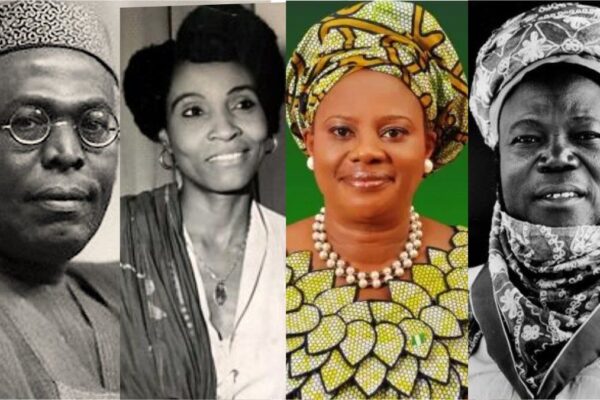Vector the Viper, a titan of the Nigerian hip-hop scene, is not just a master of lyrical venom. His journey is a testament to the dedication, artistic evolution and navigating the ever-shifting landscape of the music industry.
From his early days grappling with rhyme schemes to his current reign as a respected veteran, Vector’s journey is an electrifying exploration of artistry, ambition and the raw power of words.
Join us as we delve into the viper’s nest – the world of Vector the Viper.
Vector The Viper biography

Vector the Viper, christened Olanrewaju Ogunmefun at birth, is a titan in the Nigerian hip-hop scene. His intricate wordplay, blistering flow and potent lyricism have cemented his position as one of the country’s most respected rappers.
But the journey to such acclaim began far from the glaring stage lights, in the formative years of a young man with a passion for music. Born on August 7, 1984, in Lagos, Vector is the fourth of five children. His early life was steeped in the vibrant energy of Lagos, a melting pot of cultures and influences.
His educational background sheds light on his upbringing. He attended a variety of schools across Nigeria, including Command Children School, Ijebu Ode Grammar School, Government College, Victoria Island and St. Gregory’s College, Ikoyi.
It was within the walls of St. Gregory’s that Vector’s artistic spark truly ignited. Encouraged by his involvement in various social activities, he found himself drawn to the stage, captivating his peers with his nascent rapping skills.
This newfound passion coincided with an increase in the hip-hop scene in Nigeria. The late 1990s saw a surge in interest in the genre, with local artists like Modenine and P-Square paving the way for a new generation of rappers.
Recognising a kindred spirit in this developing art form, Vector, then just a teenager, took a pivotal step in 1999. He co-founded a group called “Badder Boiz” with two other aspiring rappers, Blaize and Crystal. This collaborative effort served as a launchpad for their creative energies.
Together, they wrote their songs, honed their craft and built a foundation for their musical identity. The group ventured into the local talent show circuit, performing and showcasing their talent.
Their dedication bore fruit in the same year when they recorded their first demo. This early effort, featuring the lead single “Knocking At Ur Door”, received some airplay on local radio stations. This taste of recognition solidified Vector’s desire to pursue a music career.
However, the collaborative effort did not last forever. By 2004, due to what is described as “irreconcilable differences”, the group disbanded. This marked the end of an era and the beginning of Vector’s solo journey.
Following the group’s split, Vector embarked on his academic pursuits, enrolling at the University of Lagos. While pursuing a Bachelor’s degree in Philosophy (which he obtained in 2008), music remained his constant companion. It was during this period that he began to develop the signature style that would propel him to stardom.
ALSO READ: Dayo Amusa: Multifaceted veteran actress who doubles as musician, businesswoman
Vector the Viper career

While his early life ignited a passion for music, it was in 2010 that Vector the Viper truly burst onto the Nigerian hip-hop scene. His debut album, “State of Surprise”, arrived that October, heralded by the infectious single, “Kilode.”
The track, released in February, served as a potent introduction to Vector’s lyrical prowess and established a strong commercial presence, further bolstered by the video’s release in June.
“Mary Jane,” another captivating single, followed in April, whetting appetites for the diverse soundscape promised by the full album.
“State of Surprise” arrived with a star-studded line-up of collaborators, including the legendary 2face Idibia and General Pype. Production credits boasted established names like H-Code and Sam Klef, ensuring a polished and contemporary sound.
The following year saw Vector capitalise on the momentum of his debut. He released the visuals for “Get Down”, featuring 2Baba. Critical acclaim followed with a nomination for “Best Mainstream Hip Hop Video” at the Nigerian Music Video Awards.
His collaborative spirit continued to shine as he garnered a nomination for “Best Collaboration With Vocals” at the Nigeria Entertainment Awards, thanks to his appearance on General Pype’s track “Champion.”
Singles like “Angeli” featuring 9ice and “Mr. Vector” with Jazzy kept Vector’s name on the lips of fans and radio stations alike. The captivating video for “Angeli” further solidified his status as a rising force.
His sophomore album, “The Second Coming,” arrived with the powerful single, “Born Leader.” The track, which featured the Jamaican superstar, Mavado, showcased Vector’s ability to seamlessly blend international influences with his signature style.
Vector joined forces with producer Pheelz in 2013 for the infectious “Popular.” The track dominated airwaves across Nigeria, further solidifying Vector’s position as a musical powerhouse.
The year 2015 witnessed a prolific output from Vector. The aggressive single, “King Kong”, stormed onto the scene, followed by a video released that same month. The track’s success spawned a series of remixes, featuring heavyweights like Phyno, Reminisce and the Ghanaian rapper, Sarkodie. He capped off a momentous year with the singles, “Kanawan Dabo” and “8”.
Vector’s dedication and talent were rewarded in 2020 with a record deal with Def Jam Africa, a testament to his ever-growing influence and reach. The same year, he revisited the collaborative spirit, teaming up with Bigtril, Raezy, and Larry Gaaga for the energetic track “OG.”
In 2022, he participated in the Africa Cypher (Hennessy Cypher), sharing the stage with luminaries like A-Reece, M.I Abaga, and Octopizzo.
Controversy
Vector’s rise to prominence has not been without its fiery encounters. In 2010, a lyrical war erupted between him and fellow rapper, Reminisce. It all began with Vector’s verse on Sauce Kid’s track “KitcheStreet”, where he took a veiled jab at some “boys” trying to “show off”. Reminisce, interpreting this as a personal attack, retaliated with the diss track, “ATA” (Street Kitchen Reply).
This marked the opening salvo in a heated exchange of lyrical barbs. Vector responded with “Distractions (Reminisce Diss)”. Here, he employed cutting wordplay, dismissing Reminisce’s claims of lyrical superiority and even taking aim at his appearance. This back-and-forth established Vector’s reputation as a formidable opponent, unafraid to engage in lyrical warfare.
However, his most prominent feud was undoubtedly with the highly respected M.I Abaga. This clash captivated the Nigerian hip-hop scene, with both rappers dropping diss tracks like “The Purge” (by Vector) and “#ThaViper” (by M.I Abaga). The wordplay grew increasingly intricate, with each artist attempting to outmanoeuvre the other.
Thankfully, in 2020, a sense of reconciliation emerged. The documentary series, “The Conversation”, brought M.I Abaga and Vector face-to-face, fostering a space for open dialogue. While underlying differences in perspective remained, the rappers acknowledged the impact of the feud and explored the possibility of future collaboration.
Vector, ever the pragmatist, later admitted that the diss tracks had a commercial upside, boosting record sales and fan engagement.
Awards and nominations
In 2011, Vector clinched the Nigerian Music Video Awards for “Best Mainstream Hip-Hop Video” with “Get Down”, featuring 2Baba. He also earned a nomination for “Best New Act” at the Dynamix All Youth Awards. Additionally, he was nominated for “Lyricist on the Roll” at The Headies.
The following year, he secured a Recognition Award at the Dynamix All Youth Awards and won “Best Rap Single” and “Lyricist on the Roll” at The Headies, as well as “Best Rap Act” at the Nigeria Entertainment Awards.
In 2012, he bagged the Nigerian Music Video Awards for “Best Afro Hip-Hop Video” with “Angeli”, featuring 9ice. His success continued in 2015, winning Lyricist on the Roll and Best Rap Single at The Headies, along with Best Rap Single for “King Kong”.
In 2021, he triumphed at the Afro X Digitals Awards for “Best Rap Single of the Year” with “Crown of Clay”.
In 2023, he was nominated for “Best Rap Album” at The Headies for “Teslim: The Energy Still Lives In Me”.
ALSO READ: Speed Darlington: Meet the ‘Bangdadadang’ rapper loved for his humour, controversial persona
Vector the Viper songs
Here are some of Vector’s song
Singles
- Angeli (feat. 9ice)
- Mr. Vector (feat. Jazzy)
- King Kong
- King Kong (Remix 1) (feat. Phyno, Reminisce, Classiq, Uzi)
- King Kong (Remix 2) (feat. Sarkodie)
- Kanawan Dabo
From Albums
State of Surprise (album):
- Kilode (single)
- Mary Jane (single)
- Get Down (feat. 2Baba Idibia)
The Second Coming (album):
- Born Leader (feat. Mavado)
Vector the Viper’s net worth

There are no reports on Vector’s net worth.
Vector the Viper family

Vector the Viper is the husband of Yinka Coker, a physiotherapist. He welcomed his daughter in October 2020 with his then-girlfriend (now wife) Yinka Coker. According to reports, Vector has another daughter from a previous relationship.
Vector The Viper age
Vector was born on August 7, 1984. He is currently 39 years old and will be 40 in 2024.
Vector The Viper Instagram
Vector has an active social media presence on Instagram, with 1.4 million followers as of the time of writing this article.
ALSO READ: Ladipoe: Nigerian rapper who’s regarded as one of the kings of Afro-rap








